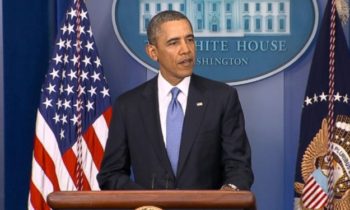
US President Warns Russia against Military Build-up in Northern Europe
US President Barack Obama has warned Russia against its “aggressive” military build-up in northern Europe.
Obama made the remarks on Friday after meeting with Nordic leaders from Iceland, Sweden, Norway, Finland, and Denmark at the White House.
“We are united in our concern about Russia’s growing aggressive military presence and posture in the Baltic-Nordic region,” he said.
Meanwhile, Denmark, Norway reportedly agreed to contribute to “enhanced allied forward presence” with the North Atlantic Organization Treaty (NATO).
The United States on Thursday activated a land-based missile system in Romania, despite Russia’s warning against a systematically increasing US-led arms deployment near its borders.
The missiles’ activation marked the penultimate step in the completion of a missile shield, which Washington proposed nearly a decade ago.
Senior American and NATO officials attended the activation ceremony in Deveselu, southern Romania.
On Friday, Russian President Vladimir Putin strongly criticized the deployment of the US missile system near his country, and vowed to neutralize any threats against Russia.
“Now that these anti-missile elements have been installed we will be forced to consider putting an end to the threats emerging in relation to Russia’s security,” Putin said during a meeting with military officials.
He also stressed that Moscow is doing its best to sustain strategic balance of power.
(alalam)

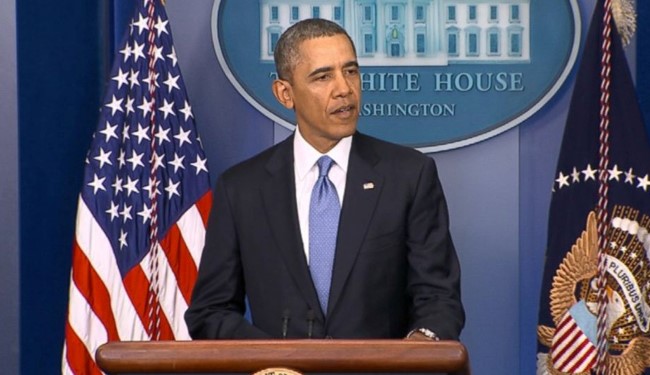
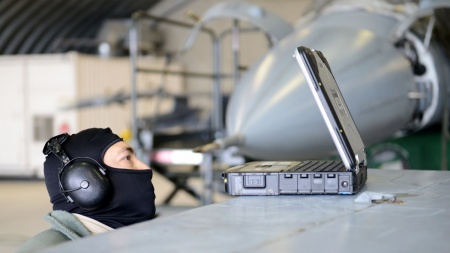
 Exercise Cold Response 16 is underway at Bodø Main Air Station, Norway, as Norwegian, U.S. and Belgian air forces continue to showcase NATO’s and the Partners for Peace’s ability to defend against any threat, in any environment-especially a frozen one. “Cold Response is designed to test our Airmen and other countries in cold-weather operations during major combat scenarios,” said Capt. William Flynt, 555th Fighter Squadron F-16 Fighting Falcon instructor pilot and exercise project officer.Operations seemed poised for a rocky start as many of Aviano’s Airmen and equipment weren’t present when the exercise kicked off; however, the Wyverns adapted quickly to the challenge.
Exercise Cold Response 16 is underway at Bodø Main Air Station, Norway, as Norwegian, U.S. and Belgian air forces continue to showcase NATO’s and the Partners for Peace’s ability to defend against any threat, in any environment-especially a frozen one. “Cold Response is designed to test our Airmen and other countries in cold-weather operations during major combat scenarios,” said Capt. William Flynt, 555th Fighter Squadron F-16 Fighting Falcon instructor pilot and exercise project officer.Operations seemed poised for a rocky start as many of Aviano’s Airmen and equipment weren’t present when the exercise kicked off; however, the Wyverns adapted quickly to the challenge.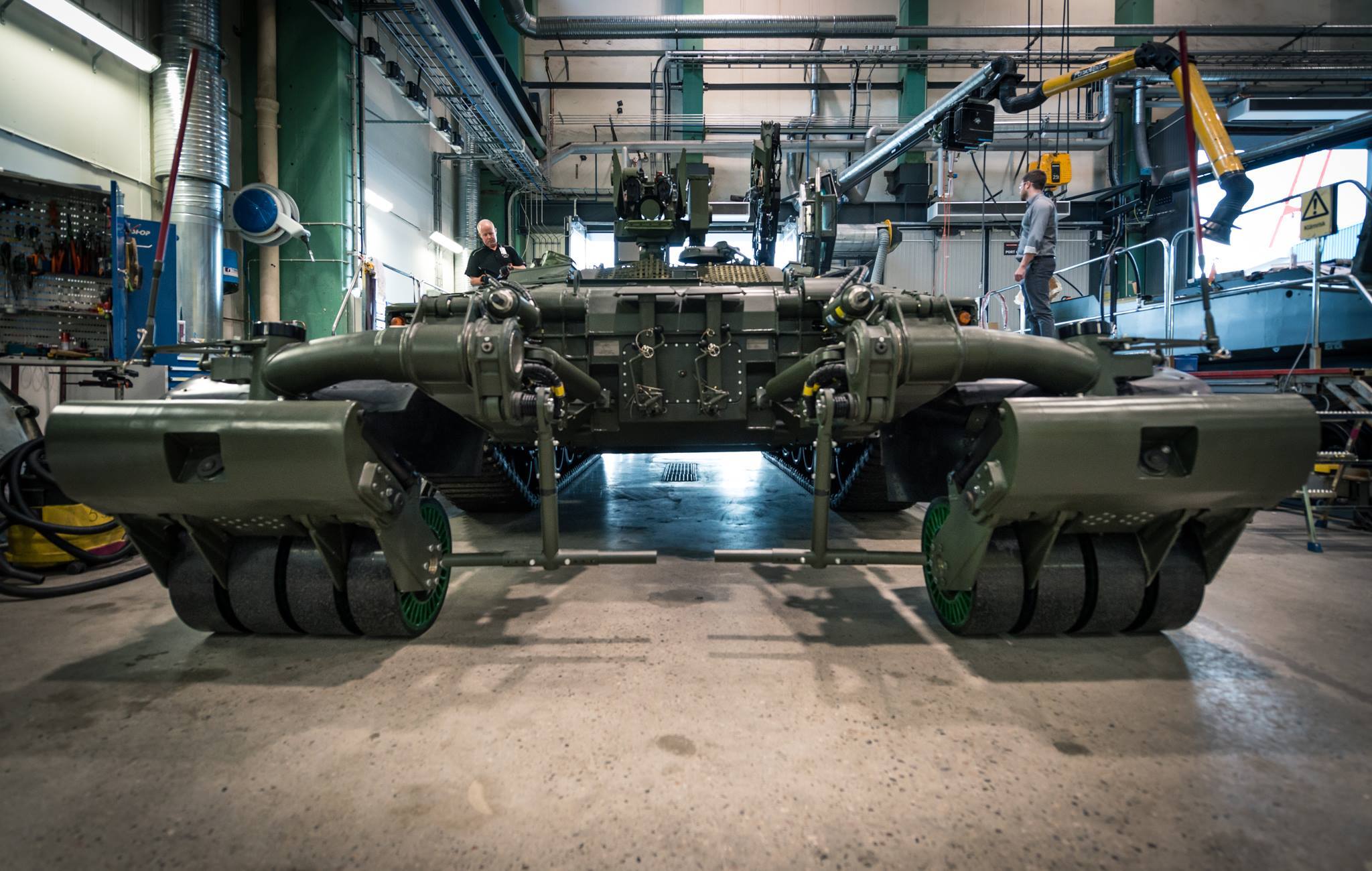
 Norwegian police and military officials say one person has been killed when a tank collided with a car on a county road during a major military exercise in central Norway. The crash happened Monday in Nord Troendelag county, where the Cold Response exercise is taking place with 15,000 soldiers from NATO and partner countries.Lt. Col. Aleksander Jankov of the Norwegian Armed Forces says the tank involved in the accident was a Norwegian “armored recovery vehicle.”
Norwegian police and military officials say one person has been killed when a tank collided with a car on a county road during a major military exercise in central Norway. The crash happened Monday in Nord Troendelag county, where the Cold Response exercise is taking place with 15,000 soldiers from NATO and partner countries.Lt. Col. Aleksander Jankov of the Norwegian Armed Forces says the tank involved in the accident was a Norwegian “armored recovery vehicle.”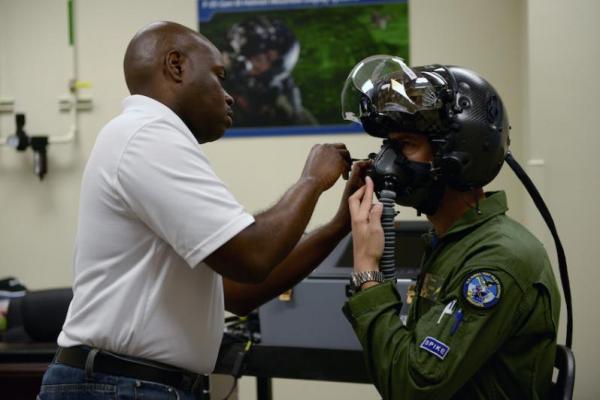
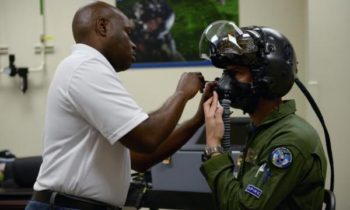 A new pilot helmet with three integrated technologies for improved situational awareness has been issued to a Norwegian F-35 pilot for the first time. The U.S. Air Force reports that the Generation III F-35 Helmet Mounted Display System from Rockwell Collins was given to the in-training F-35 pilot late last week at Luke Air Force Base in Arizona.The helmet incorporates improved night vision, optics and liquid-crystal displays.
A new pilot helmet with three integrated technologies for improved situational awareness has been issued to a Norwegian F-35 pilot for the first time. The U.S. Air Force reports that the Generation III F-35 Helmet Mounted Display System from Rockwell Collins was given to the in-training F-35 pilot late last week at Luke Air Force Base in Arizona.The helmet incorporates improved night vision, optics and liquid-crystal displays.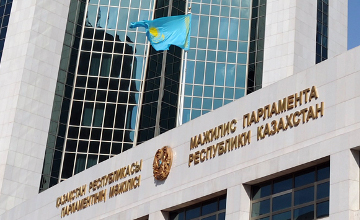
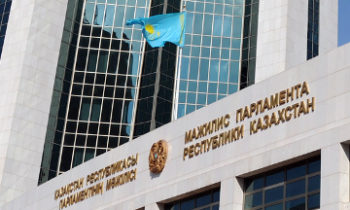 Kazakhstani parliamentarians – Vice Speaker of Majilis Abai Tasbulatov and member of the Senate’s Committee for international relations, defense and security Sergei Gromov – participated in the 61st annual session of the NATO Parliamentary Assembly from October 10 to October 12 in Stavanger, Norway, the Majilis’ press service reports.Over 300 parliamentarians from 28 NATO member countries, delegates from partner countries and observers discussed the problems of international security, paying utmost attention to the Middle East and Northern Africa crisis, relations with Russia, refugees, and terrorist attacks.
Kazakhstani parliamentarians – Vice Speaker of Majilis Abai Tasbulatov and member of the Senate’s Committee for international relations, defense and security Sergei Gromov – participated in the 61st annual session of the NATO Parliamentary Assembly from October 10 to October 12 in Stavanger, Norway, the Majilis’ press service reports.Over 300 parliamentarians from 28 NATO member countries, delegates from partner countries and observers discussed the problems of international security, paying utmost attention to the Middle East and Northern Africa crisis, relations with Russia, refugees, and terrorist attacks.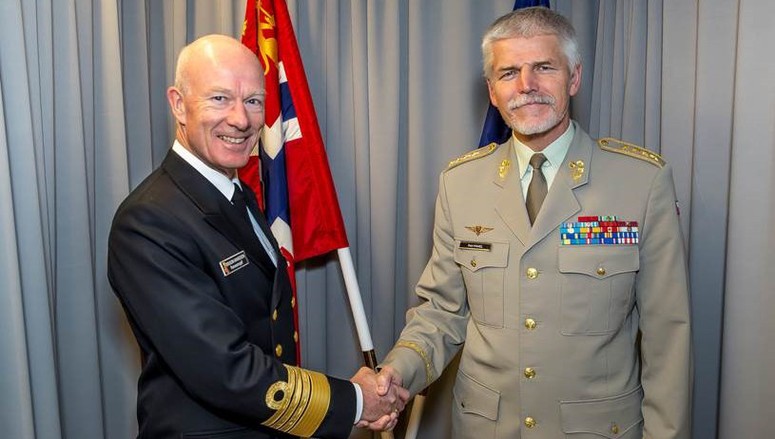
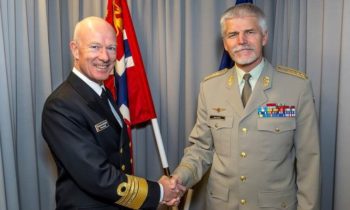 The Chairman of the NATO Military Committee, General Petr Pavel concluded a four-day trip (11 to 14 October) to Norway where he attended the 61st Session of the NATO Parliamentary Assembly, visited the Joint Warfare Centre (JWC) and met His Royal Highness King Harald V of Norway.The Chairman of the NATO Military Committee, General Petr Pavel started off his country visit to Norway by addressing the members of the Defence and Security Committee of the NATO Parliamentary Assembly. He highlighted NATO’s progress on implementing the pledges made at the Wales Summit in 2014 and the challenges that still lie on the road to the Warsaw Summit in July 2015. “The Readiness Action Plan (RAP) is just the first step in adapting the Alliance for the challenges of the 21st century. The RAP will be implemented by Warsaw, and more importantly ready to deter any threat the Alliance may encounter”.
The Chairman of the NATO Military Committee, General Petr Pavel concluded a four-day trip (11 to 14 October) to Norway where he attended the 61st Session of the NATO Parliamentary Assembly, visited the Joint Warfare Centre (JWC) and met His Royal Highness King Harald V of Norway.The Chairman of the NATO Military Committee, General Petr Pavel started off his country visit to Norway by addressing the members of the Defence and Security Committee of the NATO Parliamentary Assembly. He highlighted NATO’s progress on implementing the pledges made at the Wales Summit in 2014 and the challenges that still lie on the road to the Warsaw Summit in July 2015. “The Readiness Action Plan (RAP) is just the first step in adapting the Alliance for the challenges of the 21st century. The RAP will be implemented by Warsaw, and more importantly ready to deter any threat the Alliance may encounter”.
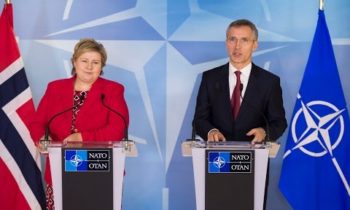 NATO Defence Ministers will meet this Thursday. Our meeting comes at a decisive time for our security. We see the Middle East and North Africa in turmoil. Russia’s deployment of significant forces in Syria is of great concern.Russian combat aircraft have violated Turkish airspace. This is unacceptable. That’s why I yesterday convened a special meeting of the North Atlantic Council. NATO allies expressed strong solidarity with Turkey. They condemned the Russian violations of NATO’s air space. I call on Russia to avoid escalating tensions with the Alliance. Russia must de-conflict its military activities in Syria.
NATO Defence Ministers will meet this Thursday. Our meeting comes at a decisive time for our security. We see the Middle East and North Africa in turmoil. Russia’s deployment of significant forces in Syria is of great concern.Russian combat aircraft have violated Turkish airspace. This is unacceptable. That’s why I yesterday convened a special meeting of the North Atlantic Council. NATO allies expressed strong solidarity with Turkey. They condemned the Russian violations of NATO’s air space. I call on Russia to avoid escalating tensions with the Alliance. Russia must de-conflict its military activities in Syria.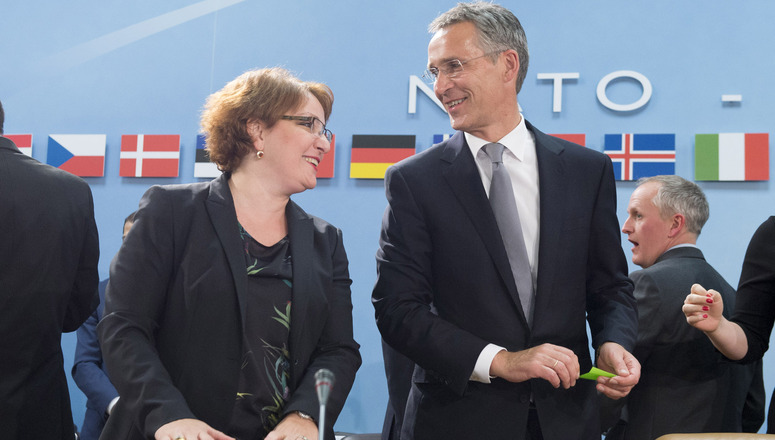
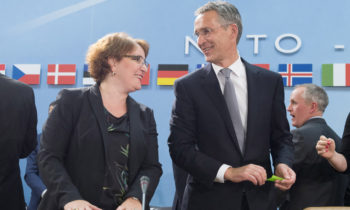

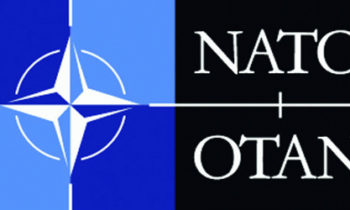 Prime Minister of Norway Erna Solberg announced that her country will contribute to NATO’s missile defence system. Solberg met with NATO’s Secretary General Jens Stoltenberg on Friday, 5 June and after the meeting she told reports that Norway is a “committed Nato member”, and therefore the country’s participation in Nato’s missile defence system is “necessary.”The missile defence system, is an international network of radar stations and anti-ballistic missile barrages. The international defence organisation wants the establishment of the defence system in Europe because it perceives ballistic missiles as a potential threat. On January, Nato’s Deputy Secretary General Alexander Vershbow had said that “rogue states can use the possession of ballistic missiles to intimidate their neighbours, extend their influence, and protect their unpopular and deteriorating regimes.”
Prime Minister of Norway Erna Solberg announced that her country will contribute to NATO’s missile defence system. Solberg met with NATO’s Secretary General Jens Stoltenberg on Friday, 5 June and after the meeting she told reports that Norway is a “committed Nato member”, and therefore the country’s participation in Nato’s missile defence system is “necessary.”The missile defence system, is an international network of radar stations and anti-ballistic missile barrages. The international defence organisation wants the establishment of the defence system in Europe because it perceives ballistic missiles as a potential threat. On January, Nato’s Deputy Secretary General Alexander Vershbow had said that “rogue states can use the possession of ballistic missiles to intimidate their neighbours, extend their influence, and protect their unpopular and deteriorating regimes.”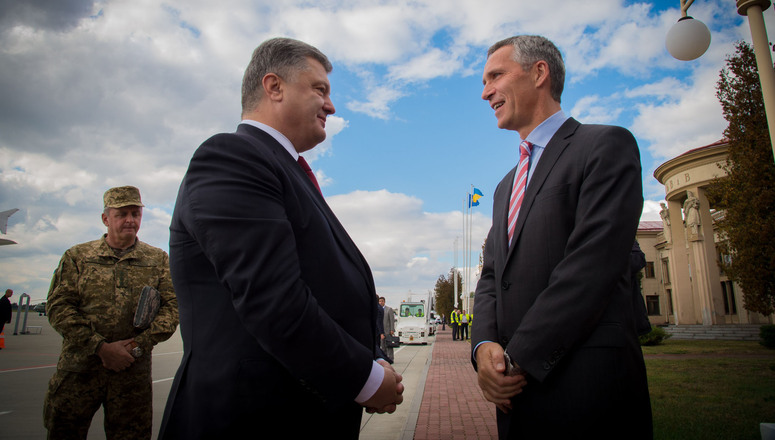
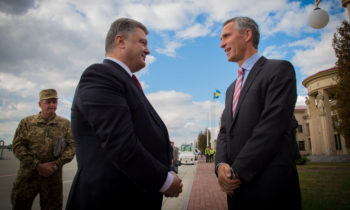
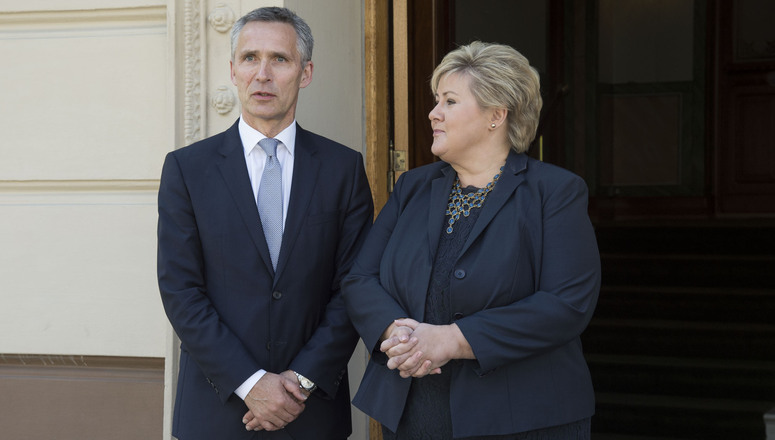
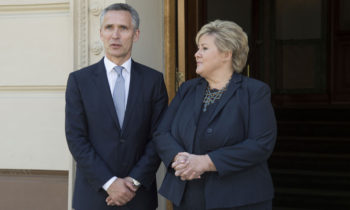
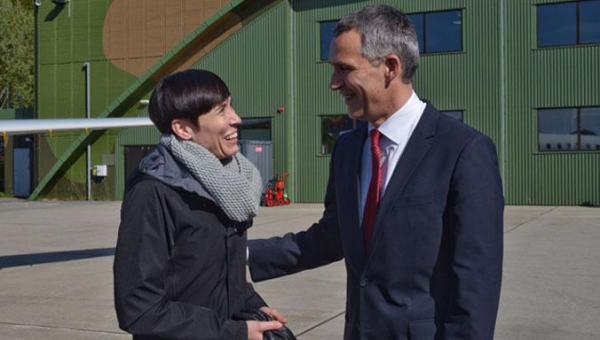
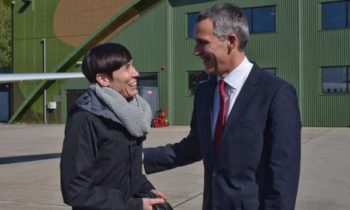 NATO chief Jens Stoltenberg said Thursday Russia is not an immediate threat, but condemned Russia for its lack of cooperation with its neighbors. Stoltenberg, in his native Norway on his first official visit as NATO Secretary-General, told state broadcaster NRK in an interview Wednesday, “What we see is more unpredictability, more insecurity, more unrest… I believe we don’t see any immediate threat against any NATO country from the east.””Our goal is still cooperation with Russia,” he added. “That serves NATO and it serves Russia.”
NATO chief Jens Stoltenberg said Thursday Russia is not an immediate threat, but condemned Russia for its lack of cooperation with its neighbors. Stoltenberg, in his native Norway on his first official visit as NATO Secretary-General, told state broadcaster NRK in an interview Wednesday, “What we see is more unpredictability, more insecurity, more unrest… I believe we don’t see any immediate threat against any NATO country from the east.””Our goal is still cooperation with Russia,” he added. “That serves NATO and it serves Russia.”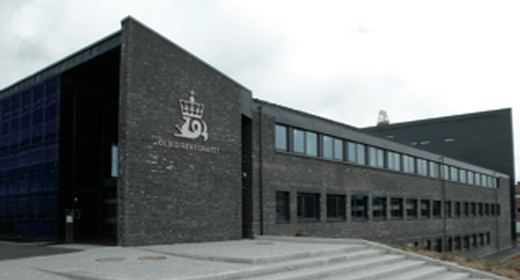
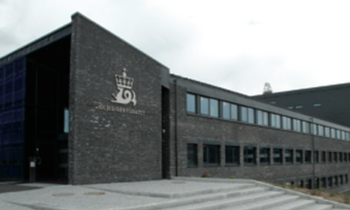 The Norwegian Petroleum Directorate (NPD) has issued an update on its analysis of recoverable oil from Norway’s various offshore fields and discoveries. NPD’s goal in 2005 was to achieve growth in oil reserves of 5 BBbl over 10 years. The actual result is somewhat below that figure, although the target would have been achieved if Statoil’s development plan for Johan Sverdrup in the North Sea had been submitted before the end of 2014.“There has been substantial resource growth in many fields,” said Kirsti Veggeland, assistant director general for shelf analysis. “The most important reasons for this are more wells, extended field lifetimes and improved knowledge.”
The Norwegian Petroleum Directorate (NPD) has issued an update on its analysis of recoverable oil from Norway’s various offshore fields and discoveries. NPD’s goal in 2005 was to achieve growth in oil reserves of 5 BBbl over 10 years. The actual result is somewhat below that figure, although the target would have been achieved if Statoil’s development plan for Johan Sverdrup in the North Sea had been submitted before the end of 2014.“There has been substantial resource growth in many fields,” said Kirsti Veggeland, assistant director general for shelf analysis. “The most important reasons for this are more wells, extended field lifetimes and improved knowledge.”
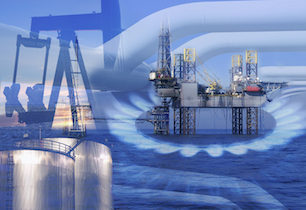 A newly-leaked report on illegal oil sales by Islamic State (IS), which was ordered to be compiled by Norway, has revealed that most of the IS-smuggled oil has been destined for Turkey, where it is sold off at bargain low prices. Norwegian daily Klassekampen leaked details of the report, which was put together by Rystad Energy, an independent oil and gas consulting firm, at the request of the Norwegian Foreign Ministry.“Large amounts of oil have been smuggled across the border to Turkey from IS-controlled areas in Syria and Iraq,” Klassekampen cited the report as saying. “[The] oil is sent by tankers via smuggling routes across the border [and] is sold at greatly reduced prices, from $25 to $45 a barrel.”
A newly-leaked report on illegal oil sales by Islamic State (IS), which was ordered to be compiled by Norway, has revealed that most of the IS-smuggled oil has been destined for Turkey, where it is sold off at bargain low prices. Norwegian daily Klassekampen leaked details of the report, which was put together by Rystad Energy, an independent oil and gas consulting firm, at the request of the Norwegian Foreign Ministry.“Large amounts of oil have been smuggled across the border to Turkey from IS-controlled areas in Syria and Iraq,” Klassekampen cited the report as saying. “[The] oil is sent by tankers via smuggling routes across the border [and] is sold at greatly reduced prices, from $25 to $45 a barrel.”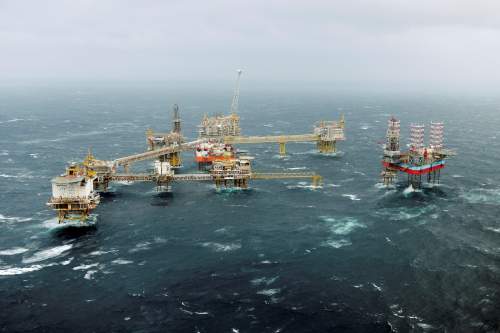
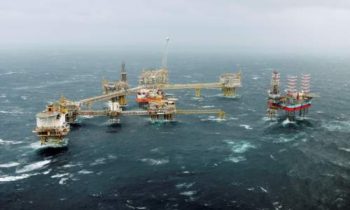 The NPD reported Wednesday that the current recoverable oil on the Norwegian Continental Shelf exceeds the estimated figure for 2005. A select number of producing fields and 62 discoveries, for which development decisions had not been made in 2005, were reviewed in order to determine the latest figures.
The NPD reported Wednesday that the current recoverable oil on the Norwegian Continental Shelf exceeds the estimated figure for 2005. A select number of producing fields and 62 discoveries, for which development decisions had not been made in 2005, were reviewed in order to determine the latest figures.

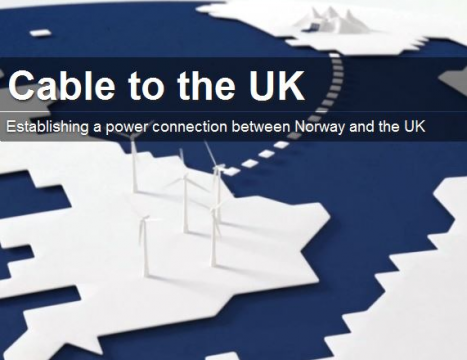
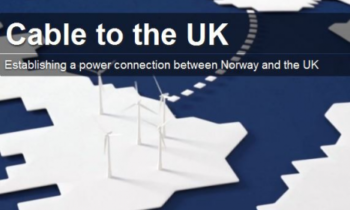 Norwegian grid operator Statnett is expected to make a final investment decision in the first quarter on a 1.5-2 billion euro project for what would be the world’s longest subsea cable. The power inter connector to Britain aims to secure power supplies in both countries. According to Statnett’s website, the project will provide benefits to both sides. When there are higher winds Norway will be able to import power from the British at a lower price than in the Norwegian market and conserve the water in its many hydropower reservoirs.Britain, respectively, will have the opportunity to buy cheaper hydropower from Norway when it needs.
Norwegian grid operator Statnett is expected to make a final investment decision in the first quarter on a 1.5-2 billion euro project for what would be the world’s longest subsea cable. The power inter connector to Britain aims to secure power supplies in both countries. According to Statnett’s website, the project will provide benefits to both sides. When there are higher winds Norway will be able to import power from the British at a lower price than in the Norwegian market and conserve the water in its many hydropower reservoirs.Britain, respectively, will have the opportunity to buy cheaper hydropower from Norway when it needs.